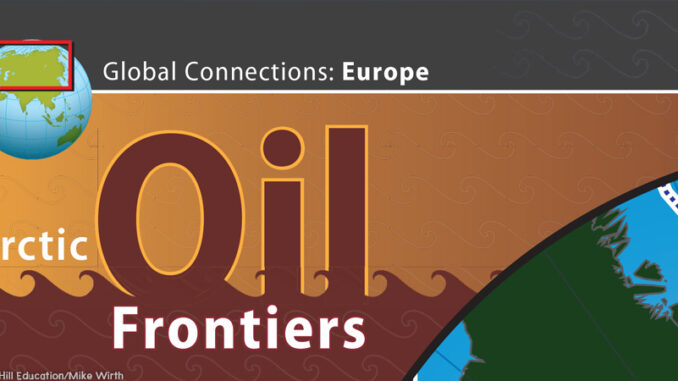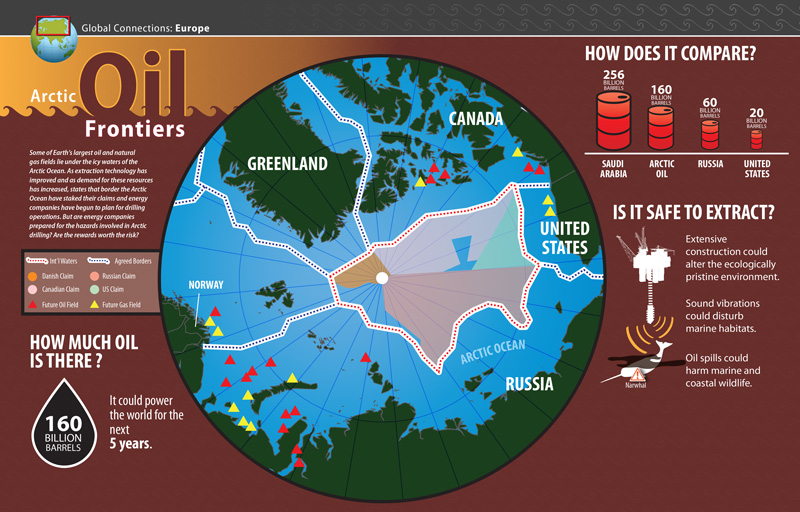

The long-running national debate over our dependence on non-renewable energy such as oil, natural gas and coal is not likely to end soon. While industry experts and lawmakers disagree over the severity of the problem and potential solutions, the reality remains that our supply of fossil fuels cannot possibly keep up with the growing demand of an ever-developing world. In the absence of significant energy alternatives, energy companies are shifting their attention to an option once thought impossible–drilling in the Arctic Ocean.
This area, located at the northern-most part of the world and borders Alaska, Canada, Russia and Greenland, is said to contain between 20 and 30% of the world’s untapped oil and gas reserves. Some consider this venture to be a great opportunity and promise while others fear it will cause great devastation.

Positive Impacts
- Less Dependence on Foreign Oil Securing our oil interests in places like the Middle East has long been a cause for military involvement. Creating our own supply could reduce future conflicts and ultimately drive down high costs of gasoline.
- More jobs Revenue from the Trans-Alaska Pipeline, constructed in the 1970s, revenue from the currently produces about one-fifth of our country’s oil supports much of the residents of Alaska, who pay no state income tax and receive government subsidies supplied by the big oil companies. Drilling in the Arctic could create an estimated 250,000 to 735,000 jobs.
- Minimal Disruption to Wildlife According to the Arctic National Wildlife Refuge (ANWR), only 8% of the 19 million acre refuge is being considered for exploration and that wildlife and oil development have been coexisting in Alaska without incident.
Negative Impacts
- Environmental Concerns Ironically, it is melting ice in the Arctic caused by climate change that is making it possible for oil companies to be able to drill in the first place. But the mining process will also further accelerate climate change. Heavy oils must be heated in order to extract them from the ground, releasing carbon dioxide. The process also requires a large amount of water and ultimately causes a high amount of pollution. Drilling also threatens certain wildlife, the bowhead whale in particular, which natives depend on for one of their main sources of food and livelihoods.
- Threat of an oil spill The 2010 explosion of the Deepwater Horizon drilling rig in the Gulf of Mexico (owned by oil company, BP) released an estimated 4.9 million barrels of oil into the ocean. It is considered the largest environmental disaster in U.S. history. Experts believe that drilling in the Arctic cannot yet be done safely and that a disaster is inevitable. The National Oil Spill Commission published a report last year saying that there are currently “no proven methods for cleaning oil spilled in ice.” In addition, they found that the Coast Guard in that area is not adequately equipped to deal with a large-scale oil leak catastrophe.
Staking Claims
If the Arctic is indeed the “next great frontier,” the question remains: who owns it? Under “international law” all five countries that border the area–United States, Canada and Greenland, Russia and Norway – can lay claim to waters up to 200 nautical miles from its coastline. However, countries can apply to the UN Convention on the Law of the Sea to have their borders extended; four of the five countries have done this (the United States is not yet eligible to a claim). Russia has also announced that it will increase its military efforts in the area.
